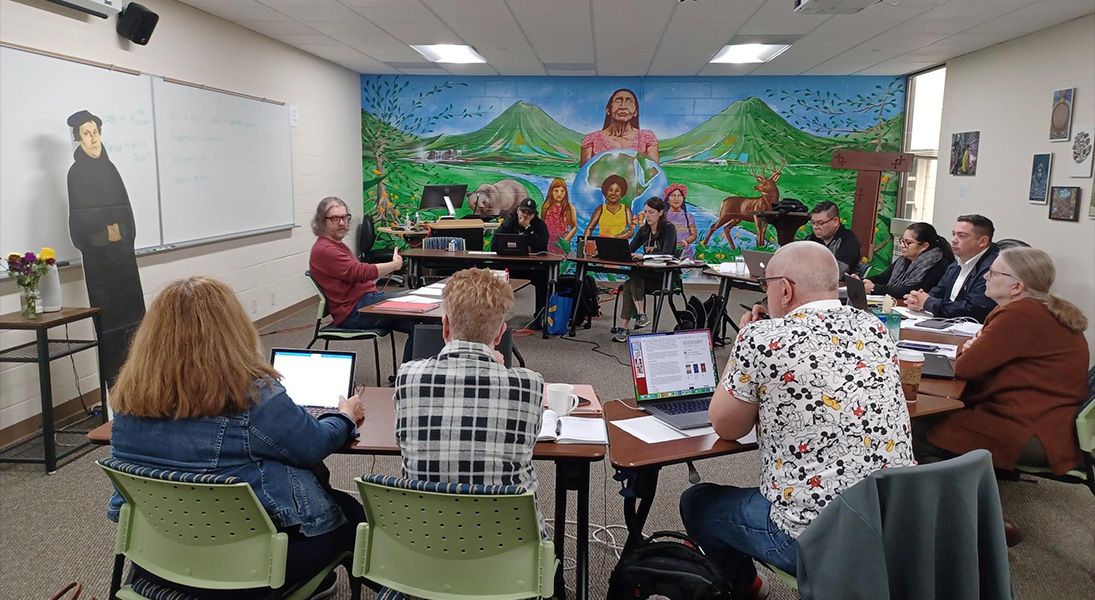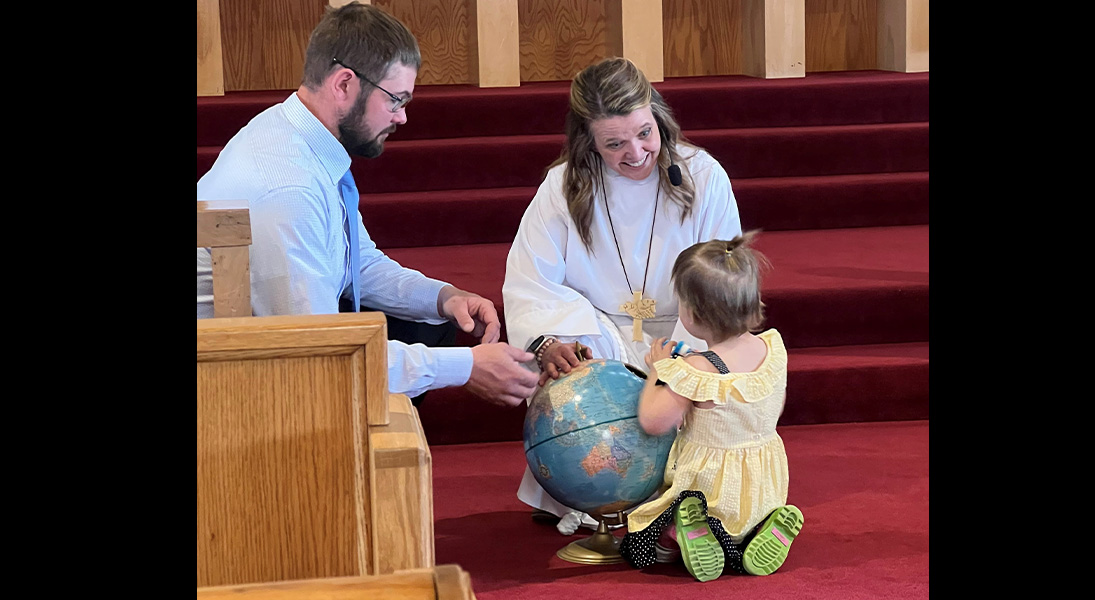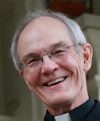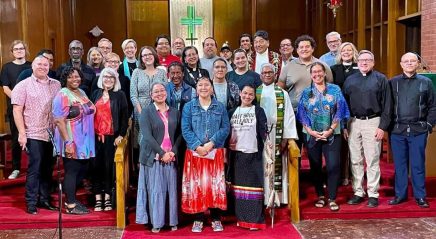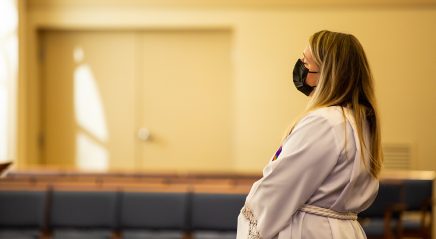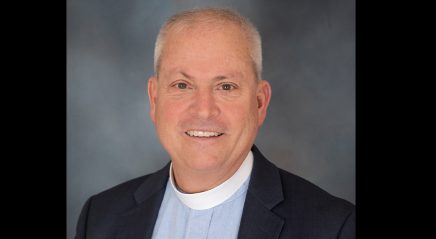On their journeys with Jesus, the first Christians were prepared for their ministries by the master teacher who “taught them as one having authority” (Matthew 7:29). Jesus’ roving band of disciples, mentored as they traveled with him on “the Way,” led the church after his resurrection.
As the church evolved from small home gatherings to more institutional forms, leadership formation shifted to monasteries and universities. In the United States, theological seminaries (meaning “seedbeds” in Latin) were first established in the early 19th century. In 2026, United Lutheran Seminary in Pennsylvania, the oldest Lutheran school, will celebrate the 200th anniversary of one of its predecessors, the Lutheran Theological Seminary at Gettysburg.
But before seminaries sprung up in the Americas, many clergy were “homegrown” preachers tutored by veteran pastors, with their classrooms being local congregations. Today, we see models evolving that combine the riches offered by seminaries with a return to localized small-group or personal study and mentoring.
Noteworthy also is the increase in diversity among those preparing for leadership.
“The needs of the ELCA are changing dramatically from pastor-led to sharing ministry in congregations,” said Philip Hirsch, executive director for ELCA Christian Community and Leadership. “This is not new, as churches on the prairie were founded by laypeople.”
The type of leadership required in many contexts has moved beyond the traditional one-pastor/one-parish model.
Handing more leadership back to the laity, he said, will foster “reclaiming the ministry of the whole people of God,” a key tenet in a Lutheran understanding of the church.
Even as the laity resumes a greater role in our faith communities, rostered ministers are still needed. But the type of leadership required in many contexts has moved beyond the traditional one-pastor/one-parish model.
The number of smaller congregations has mushroomed in recent years, accelerated by the COVID-19 pandemic. A new study released by ELCA Research and Evaluation, “The Future Need for Pastoral Leaders in the ELCA,” reveals that whereas 3 out of 10 ELCA congregations in 2015 had an average worship attendance under 50, by 2022 nearly 60% of congregations fell into that category.
“Today,” the study concludes, the ELCA “is mostly very small congregations” and about 45% of them can’t afford a full-time pastor.
Changes in ministry
Yoked congregations sharing a pastor is a long-established pattern. And well-prepared people who can couple public ministry with another career or engage part time while semiretired continue to serve many small parishes.
A growing number of congregations are identifying a member who can become their pastoral leader. Such people often can’t go off to a distant seminary lest the congregation be left without a leader. This is especially the case in new ministries among immigrants where often no available ELCA pastors speak the language of the people.
As the need to prepare leaders in their current locales is increasingly recognized, the ELCA has developed alternative routes to ordained service and stronger preparation for lay ministers.
The ELCA has developed alternative routes to ordained service and stronger preparation for lay ministers.
Theological Education for Emerging Ministries (TEEM) combines online or short-term intensive seminary courses with on-site learning and formation in congregations. The program recaptures the apprenticeship model of local mentoring, supplemented by the resources offered by seminary professors, classes, libraries and peer learners. TEEM-track candidates preparing for ministry are growing in number, with about 70 in 2024 and at least 122 in 2025.
Also growing is the cadre of synod-authorized ministers (SAMs). These nonordained lay leaders serve under supervision of bishops’ offices. The study on leadership needs revealed that at least 756 ELCA congregations, or 9% of the church’s total of nearly 8,500, are served by SAMs.
After four congregations lost a pastoral team in the Crosby, N.D., area, parish and synod leaders identified five laywomen who now provide pastoral care and worship leadership as SAMs. One of the five, Rebecca Knudson, sensed a call to prepare for ordained service and is a TEEM candidate at Wartburg Theological Seminary in Dubuque, Iowa.
At a point in life when taking on debt can be prohibitive, Knudson expresses gratitude for support from the ELCA Fund for Leaders program, her synod and the seminary. “I am very humbled people have taken an interest in me,” she said.
Changes in approach
Until recently the primary style of theological education was residential. Seminarians lived on a campus where courses were offered in classrooms, and students worshiped in chapel, ate together and studied in libraries. Accelerated during the pandemic, online and hybrid education has become a mainstay in many degree and nondegree programs.
For some learners, especially SAMs who often hold full-time jobs while serving congregations, an asynchronous approach is most accessible: they can proceed individually through online courses on their own schedules and at their own pace.
In a TEEM partnership with Pacific Lutheran Theological Seminary in Berkeley, Calif., Luther Seminary in St. Paul, Minn., currently offers more than 40 online courses to enrollees in its Faith+Lead series. This summer the Lutheran School of Theology at Chicago is launching its asynchronous Starling Program to support TEEM and SAM learners, as well as others seeking online certificates, workshops and training opportunities.
“The Fund’s impact cannot be overstated.”
In another joint program, Lutheran Theological Southern Seminary in Columbia, S.C., and United Lutheran Seminary partner with synods in the formation of TEEM and SAM leaders. Wartburg also offers in-person and online programs, and Trinity Lutheran Seminary in Columbus, Ohio, offers a small roster of online courses in addition to in-person programs.
For new pastors and deacons on the other side of seminary education, alarm bells sounded when the ELCA recognized that some rostered ministers were finishing seminary with debts rising to six figures.
In 1997 the ELCA launched the Fund for Leaders program, with a goal of providing financial support for all students with need. With a current endowment of about $90 million, the program annually awards 30 full-tuition scholarships to seminarians throughout their studies.
With declining numbers of students in traditional seminary preparation and the growing number of TEEM candidates, Fund for Leaders recognized the need to pivot and offer these emerging leaders financial support as well. In the past two years, all TEEM candidates received grants of $3,000 to help with the costs of their preparation. “The fund’s impact cannot be overstated,” said Marissa Krey, the program’s director.
Changes in vocational discernment
In Romans 10:14, Paul asks the probing question, “How are they to hear without someone to proclaim him?” Identifying and encouraging people who can be proclaimers and public ministers is the responsibility of the whole people of God.
Many current pastors and deacons can point to encouragers in their home congregations, at church camp or in campus ministry who influenced their vocational decisions.
Seminaries’ outreach programs give them access to congregations where prospective rostered ministers or lay leaders may be found. For those sensing a call to explore church leadership, last year Fund for Leaders began offering online discernment groups designed to connect participants who are interested in learning more about seminary education. Similarly, it’s piloting a program offering the guidance of a discernment retreat delivered directly to people’s mailboxes: a “retreat in a box.”
When we see gifts for ministry in fellow believers, we can all plant seeds of encouragement.
An idea initially generated by Bethany Lutheran Church in Cherry Hills Village, Colo., through a local grant, the “retreat in a box” is beginning to spread among young people, such as ELCA camp participants, who are searching for their next step. The box offers Bible studies, inspirational messages, diaries for personal reflection and other prompts to “consider [their] own call” (1 Corinthians 1:26).
When we see gifts for ministry in fellow believers, we can all plant seeds of encouragement. Like the tiny mustard seed in Jesus’ parable, they may grow beyond our wildest dreams.




